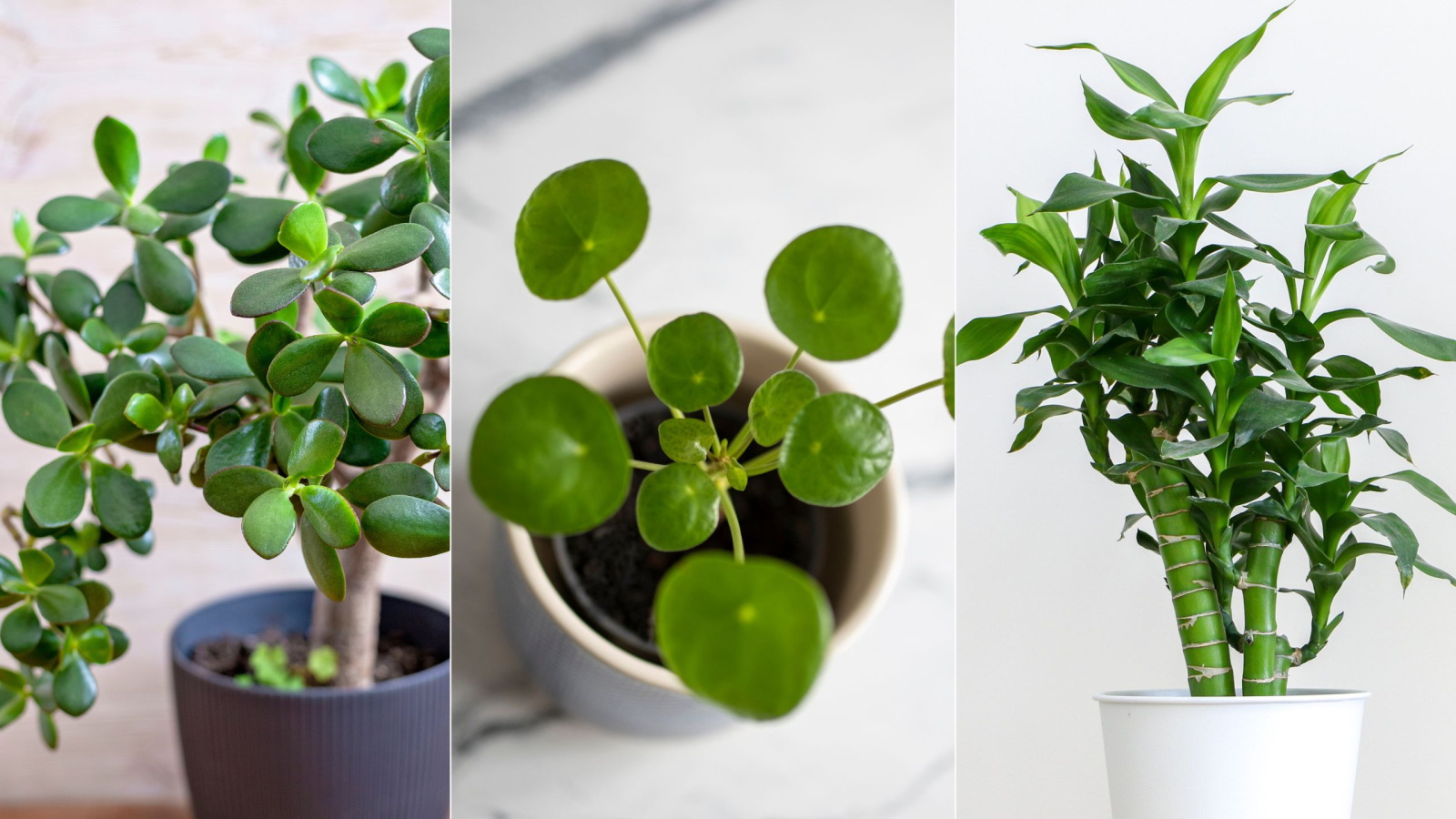
Did you know you can up your manifestation game with lucky houseplants? Certain indoor plants have historically been considered lucky in different cultures and practices, which is why many people continue to choose them for their home.
Just like lucky plants you grow in your yard, different houseplants are symbolic of different things and can be used in different ways to harness their connotations. For example, Feng Shui plants are used to bring positive energy to interiors and can be placed in particular parts of the home to reap their benefits.
Here, we take a look at the houseplants considered to be the luckiest and why this is the case. Plus, a plant expert shares tips on how to grow them successfully (spoiler: they're all really easy to care for).
5 lucky houseplants for good fortune
Whether cultural meanings or historical references make these houseplants lucky, many believe choosing the right one for your home will bring you good fortune in all aspects of life. Here are five lucky houseplants and their meanings to get you started:
1. Chinese money plant
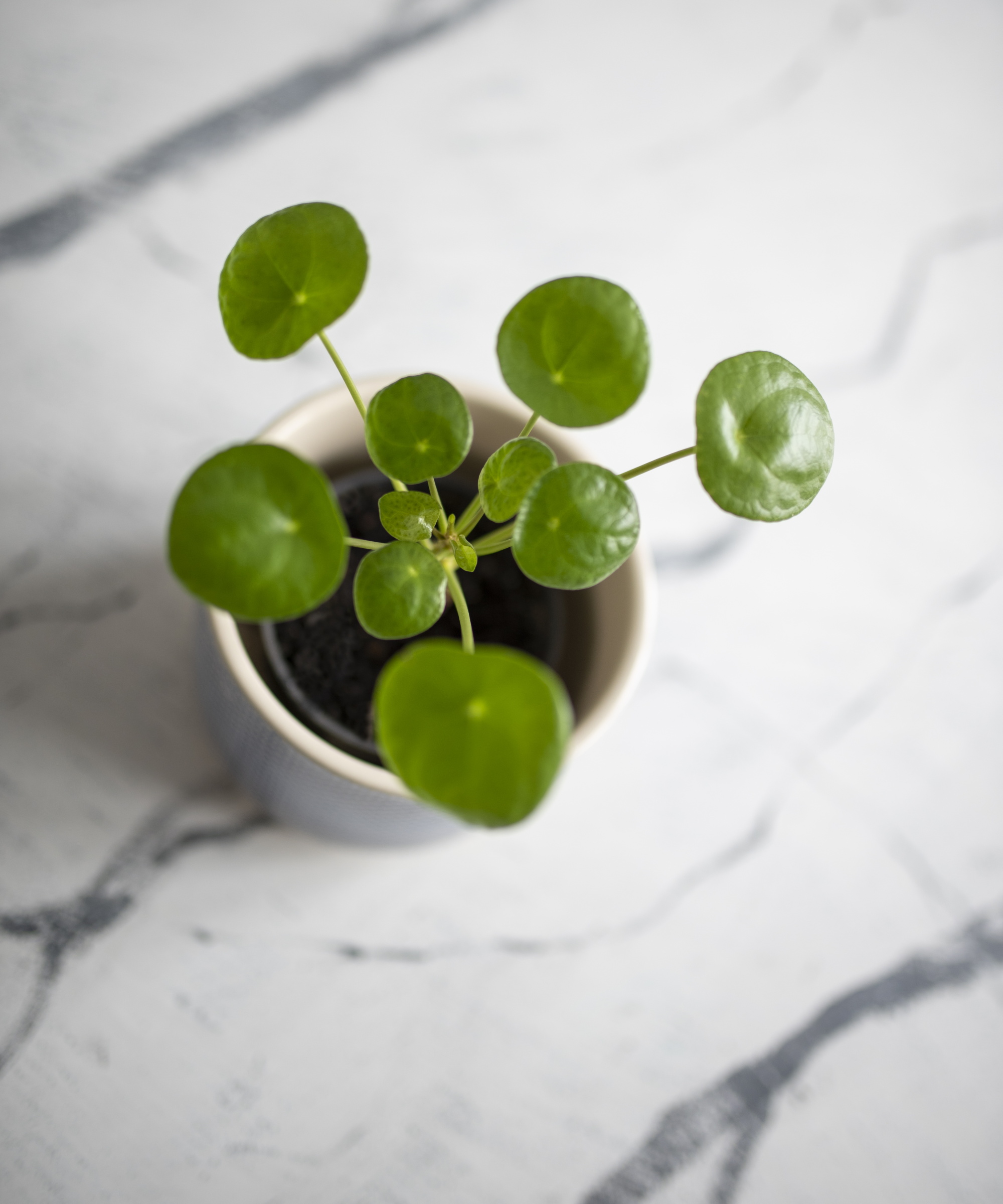
You can grow a Chinese money plant with ease. They're sun-loving houseplants with succulent-like, round leaves, reminiscent of coins.
In Chinese culture, these plants are associated with wealth and prosperity, thanks to their round, flat leaves, and having one in your possession is thought to bring good fortune.
'Keep the plant moist but not soggy,' advises Julie Bawden-Davis, indoor plant expert at Healthy Houseplants. 'You should also fertilize from spring through fall monthly with a well-balanced, organic fertilizer (available at Amazon),' she adds.
If your Chinese money plant's leaves are curling, it's usually a sign of heat stress. Although they enjoy plenty of sunlight, too much direct sun can cause leaf scorch. As Julie notes, keeping the plant at a consistent moisture level can help prevent these issues.
You can find a Chinese money plant at Walmart.
2. Aglaonema 'White Kiwi'
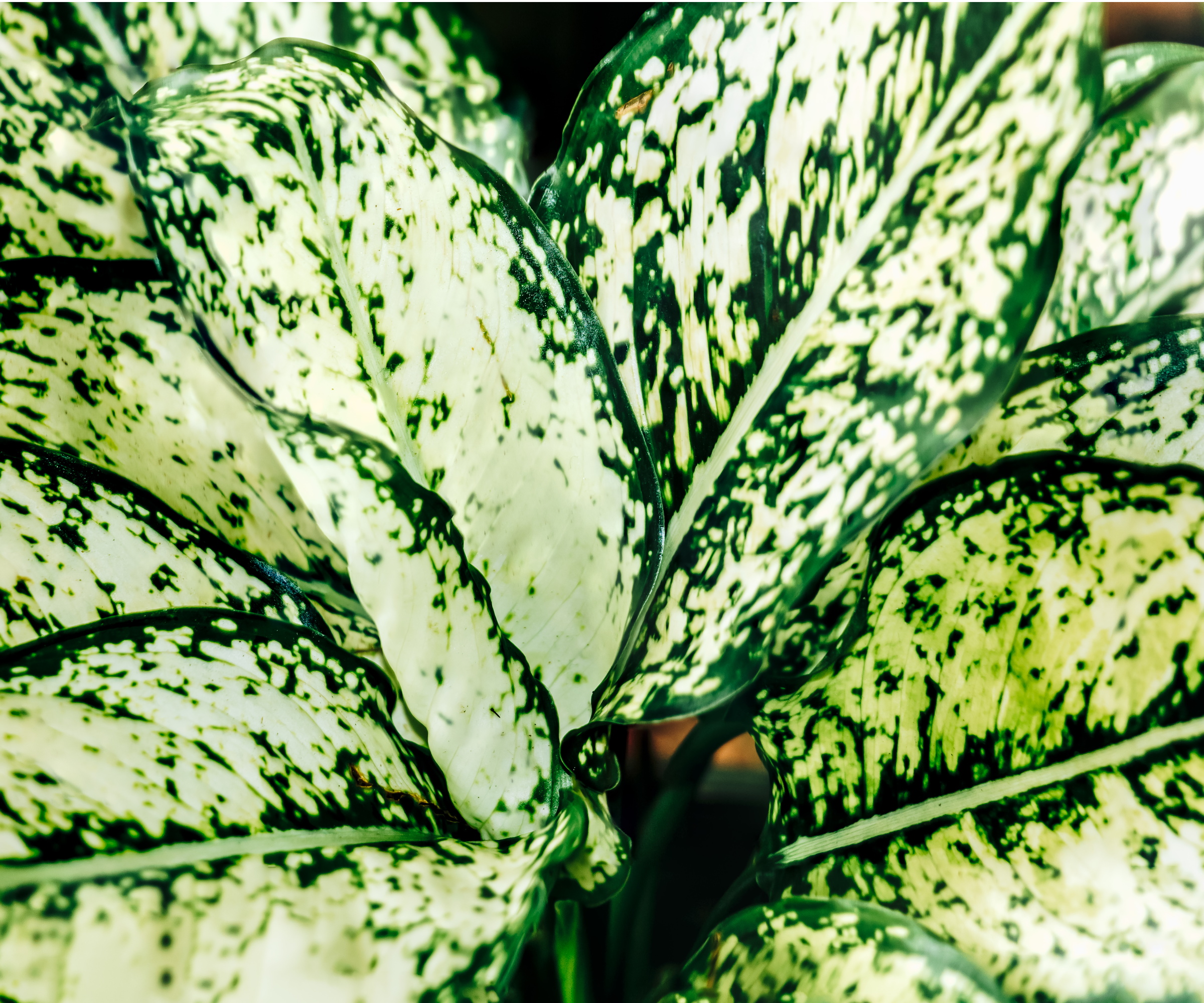
With so many Chinese evergreen varieties to choose from, it can be overwhelming to find the right one for your home. Well, if you're after one to bring good luck, opt for Agalonema 'White Kiwi' - a beautiful white, speckled, leafy plant.
'This plant is said to bring positive energy and good fortune into a space, according to Feng Shui,' Julie explains. 'One of the reasons it is considered such a lucky plant is due to how easy it is to grow,' she adds.
Caring for a Chinese evergreen is straightforward, as Julie notes. They're indoor low light plants, can tolerate short period of drought, and don't grow too quickly, so only require repotting every three years on average.
'It's best to provide medium light and water when the first inch of soil has dried out,' Julie notes. You can use this soil moisture meter from Amazon to identify when it's time to water your Chinese evergreen.
3. Lucky bamboo
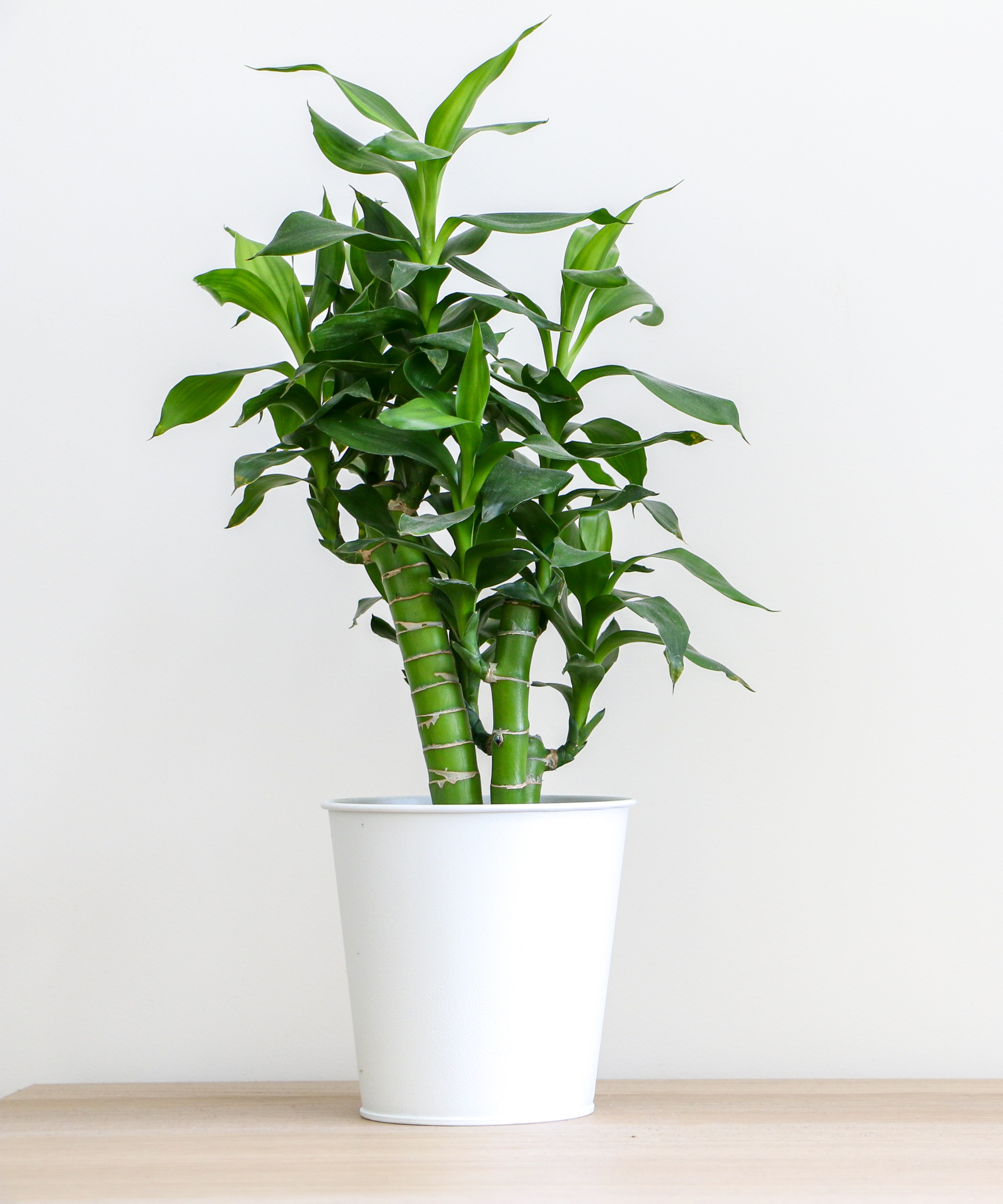
It's no surprise lucky bamboo is on the list of lucky houseplants, it even says it in its name. It earns its luck from Asian cultures that observe it's fast-growing indoor plant nature and easy propagation, among other factors. However, there are some considerations to keep in mind if you want to make the most of your lucky bamboo.
The number of stalks of your lucky bamboo plant represent different things. For example, one stem is symbolic of a meaningful life, two is luck in love, and three represents happiness and longevity.
You can also place lucky bamboo in certain areas of your home to impact the good fortune it brings, according to Feng Shui. A big part of this is growing lucky bamboo in optimal conditions with plenty of sunlight.
'This plant tends to be grown in water, so make sure to change the water every one to two weeks,' Julie notes. 'Generally, they don’t need to be fertilized if they are being grown in well or tap water. But, if you grow them in RO or filtered water, fertilize very three months with ¼ strength liquid fertilizer put into fresh water,' she advises.
Purchase a bundle of lucky bamboo stalks from Walmart.
4. Peace lily
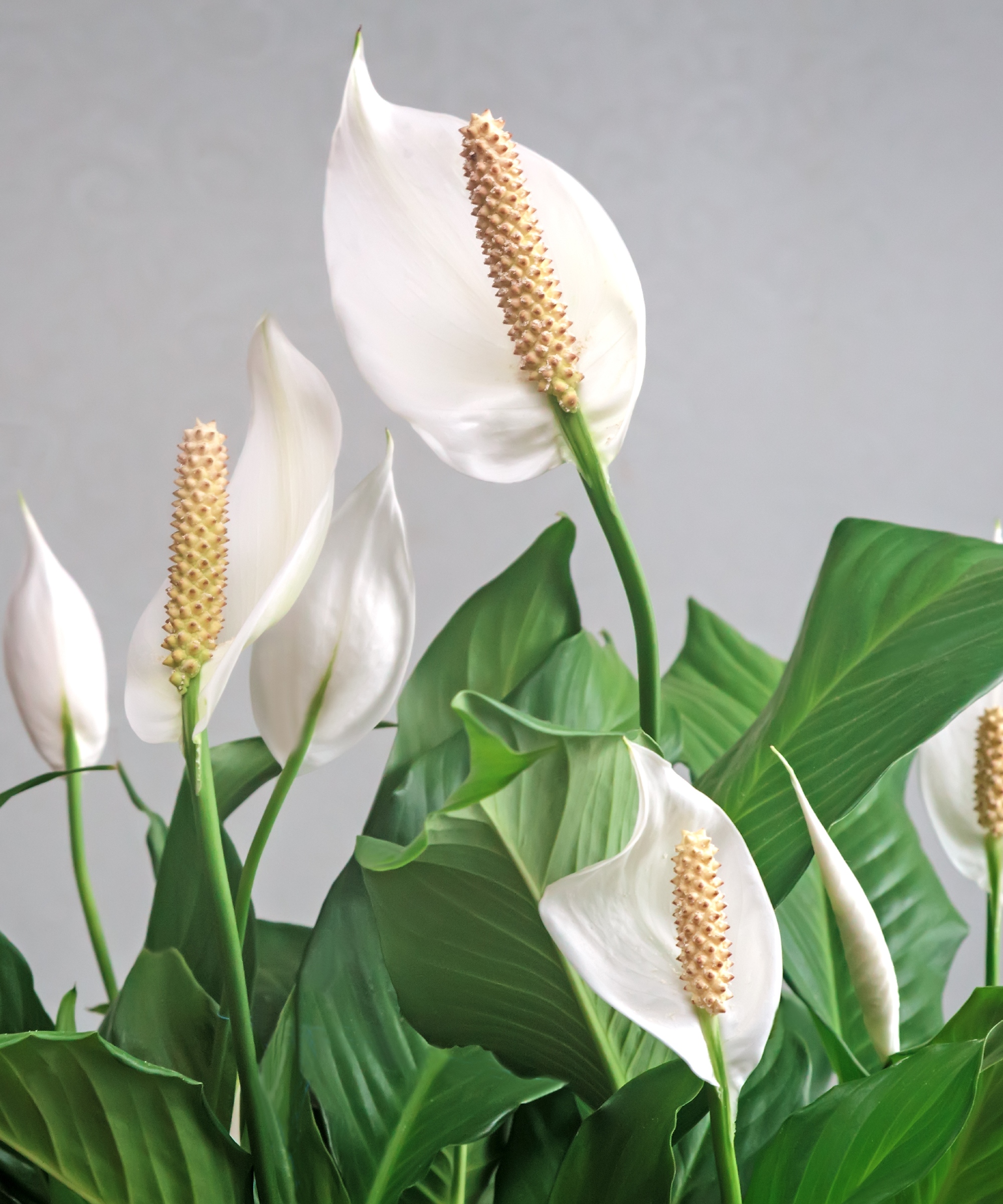
Not only are indoor flowering plants beautiful additions to houseplant displays, bringing color and shape, they can also help set a good precedent in your home. Peace lilies - available at The Sill - are a particularly popular choice of lucky houseplant for this reason.
'Peace lilies are known as the resurrection plant, because of their association with death and rebirth,' Julie explains. 'They are also tolerant of drought and will resurrect after not being watered,' she adds.
To care for peace lilies and to keep them blooming, place your peace lily somewhere with bright, indirect lighting.
'Despite their tolerance of drought, it is best to keep the soil moist but not soggy,' Julie adds. Prolonged periods of drought may cause a peace lily to turn yellow or cause a peace lily to droop.
Don't forget to deadhead once peace lilies finish flowering. This will encourage new growth and returning blooms.
5. Jade plant
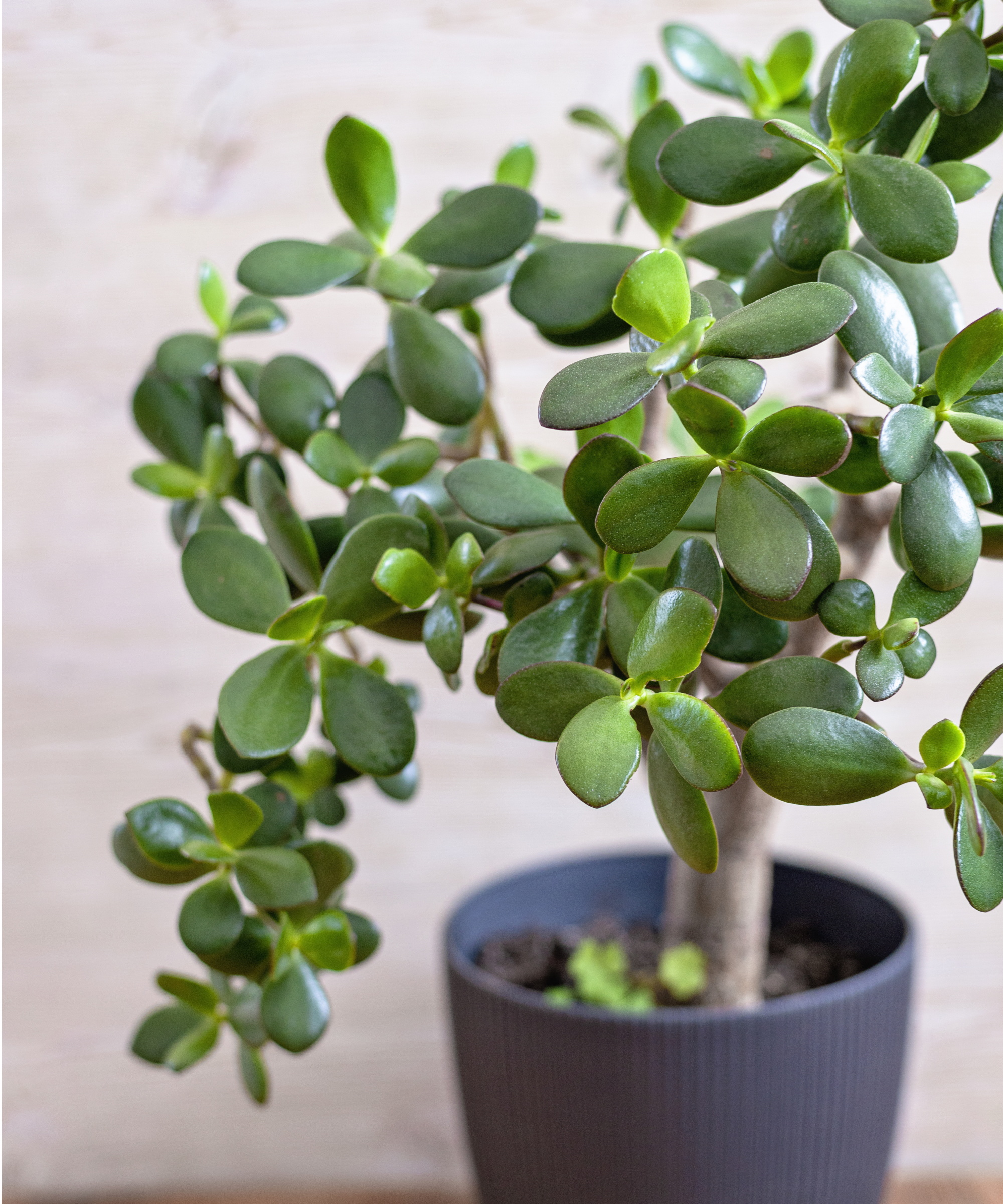
'Jade plant is considered one of the most revered plants to attract wealth and prosperity,' says Julie. This is partly due to the foliage of these plants resembling jade stones.
That's why placing a jade plant in certain areas of your home, such as a workspace or entryway, is a popular practice. Not only this, but it's easy to care for jade plants and keep them happy.
'They are succulents, so let the soil dry before watering,' Julie notes. When watering a jade plant, ensuring it has first dried out will prevent issues of houseplant root rot and stop your jade plant dropping leaves.
'Provide bright light and fertilize every six months with a fertilizer designed for succulents and cacti (from Amazon),' Julie adds.
Find a jade plant at Walmart.
FAQs
What happens if my lucky houseplant dies?
If your lucky houseplant is dying, it could be interpreted as bad luck. For example, it's a common Feng Shui houseplant mistake to not provide your houseplants with proper care, as it can impact the energy in your home. To avoid this, make sure to familiarize yourself with the optimal care your lucky houseplant needs and make any adjustments in its growing environment to bring it back to health - such as pruning away discolored foliage and improving your watering regime, for example.
No matter which lucky houseplant you choose for your home, make sure to avoid indoor plant mistakes that could lead to their downfall. An unhealthy lucky houseplant isn't likely to benefit your home. Likewise, there are actually some Feng Shui plants to avoid that are considered to bring the opposite effect of lucky houseplants, including cacti.







